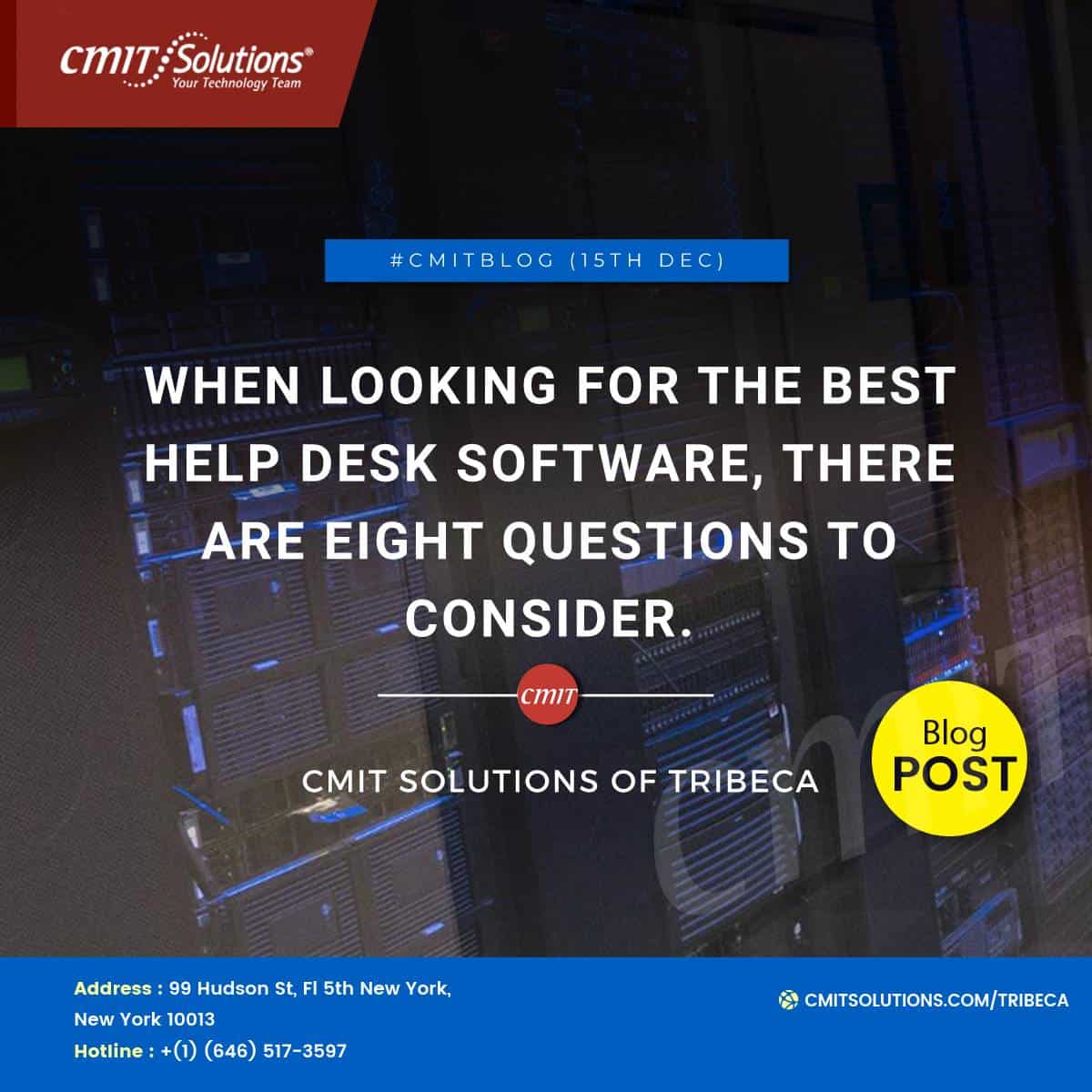A digital help desk is no longer an option, it’s a necessity. Your audience, no matter what business you’re in, wants rapid answers to common issues and difficulties. To handle these kinds of demands, a manual intake and ticket management system is just insufficient.
But how will you be able to meet the needs of such a demanding audience? A diverse set of support desk software options claims to deliver exactly what you want. A deliberate strategy is required to cut through the clutter. Consider asking these eight questions if you want to locate the best help desk software for your company’s needs.
Questions to Ponder When Choosing the Best Help Desk Software:
1) Which channels are covered and which are excluded?
First and first, and probably most crucially, you must ensure that the ticket inflow corresponds to the demands of your audience. Simply said, they should be able to explain why their chosen mode of communication isn’t working. In today’s world, this entails more than just making phone calls and sending emails to create tickets. A good help desk software should include social networking, live chat, and a variety of additional features that make it easy for your customers to report an issue.
2) What Is the Flow of Your Ticket Workflow?
Of course, the input channel is merely the beginning. When a ticket is submitted into the system, what occurs next? What happens next, and how much control do you have over the outcome? All of these are key topics to think about when you search for help desk software that meets your particular needs.
Customization is crucial in this case. Every company works uniquely. You should be able to define custom criteria to assist your tickets to flow to the appropriate person and department automatically. The more you can automate the process, the more time and resources you’ll save when it comes to responding to complaints and inquiries.
3) Do You Provide Prioritization and Escalation?
Some issues can be readily fixed by the first person who looks at them. Others, on the other hand, need more complicated procedures. Does the help desk platform you’re considering taking these factors into account? How easy is it to escalate a ticket to someone with higher authority while also prioritizing particularly important issues?
Both components of this feature should, in theory, be seamlessly incorporated into the software. They play a critical role in ensuring that your customers’ issues are addressed quickly and effectively.
4) How Does the Software Help You Work More Productively?
Another important factor in resolving issues promptly is your agents’ productivity when using the program. Routine activities, in particular, may rapidly become diversions, and collaborating on more complicated challenges might be enticing.
You’ll need software that combats our natural impulses in both circumstances. An internal chat application, for example, can assist your staff in exchanging ideas and assigning tasks. Gamification in the form of success levels, on the other hand, keeps everyone engaged, especially when tiny prizes are tied to individual accomplishments.
5) Can Help Desk Agents Have Remote Access?
What happens when the only person who can help a customer with a problem is away on business? Consider a computer malfunction that forces your agents to work outside of their usual stations. Or, better yet, an organizational framework that was developed with remote work in mind from the start?
All of these cases necessitate the use of a remote connection. Make certain that any help desk software you pick provides access from any device. Accessibility in the form of a mobile platform or app is also important in the age of smartphones.
6) How About a Self-Service Portal for Frequently Asked Questions?
A standardized solution is the best form of solution. Regardless of the sorts of complaints you receive about your product or service, some will almost certainly occur more frequently than others. It makes sense to construct a resource that contains lessons and other walk-throughs for solutions rather than handling each one individually.
This capability is not available in all help desk software, which makes this question all the more important. If you can locate a platform that does, you’ll be able to reduce the time for your clients and agents, as well as make your overall business more efficient.
7) Do you have the ability to track data to make future improvements?
Simply said, you should not sign a contract for software that does not allow you to track data. We live in an age of analytics, in which everything you do online can be tracked. Taking advantage of this fact means you’ll be able to improve your business over time.
Average ticket closing time, most commonly asked inquiries, most popular channels, and more are all possible data points. The finest help desk software will enable you to use that data to make informed decisions that will help your company grow.
8) What About Earned Opportunities?
So far, all of the aforementioned questions apply to any form of a help desk. However, depending on your industry, your requirements may extend beyond simply tickets. Larger SaaS organizations, in particular, may charge for enhancements and advisory guidance. Is your support desk software capable of accounting for this?
Your program must account for either ticket or time-based charging if you want it to. Tax calculations, time tracking, billing package generation, billing reporting, and a payment mechanism should all be included. To avoid complications later, it’s critical to ask this question as soon as possible.
9) How Much Does It Cost?
Finally, and perhaps most crucially, no investigation into the best help desk software for your needs should be complete without determining whether or not the cost is appropriate for your budget. How much are you anticipated to spend, and how flexible is that pricing in comparison to future expansion plans?
Depending on your requirements, the possibilities will be many. Pricing is typically per user/agent, however, bundle discounts may be available. Before committing to a specific pricing range, educate yourself on the options.







